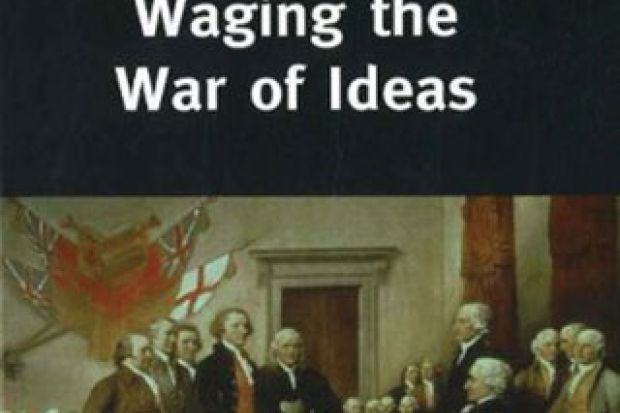Peter Paul Catterall, reader in history, University of Westminster, is reading John Blundell’s Waging the War of Ideas (Institute of Economic Affairs, 2007). “For those who denounce neoliberalism without seemingly having read any, this is a useful introduction. Much that is touted as neoliberal is merely pro-business, sometimes creating rather than breaking those conspiracies against the public known as cartels. It is the distortions of markets by self-interested actors, including governments, that is pernicious rather than the existence of markets themselves.”

Laurence Coupe, visiting professor of English, Manchester Metropolitan University, is rereading Morris Berman’s The Reenchantment of the World (Cornell University Press, 1981). “It’s 30 years since I last read this, and it seems more relevant than ever. Berman outlines the ‘disenchantment’ that set in with ‘the Cartesian paradigm’ – separating mind from body, humanity from nature, knower from known. We need, he says, to rediscover the holistic vision of animism, the earliest form of religion. But ‘reenchantment’ cannot be a simple return, and he makes a convincing case for ecology as the unifying model for our era.”

Timothy Darvill, professor of archaeology, Bournemouth University, is reading Harry Karlinsky’s The Stonehenge Letters (The Friday Project, 2014). “Karlinsky takes us back to the years following Alfred Nobel’s death and the challenges facing those charged with setting up the Nobel prizes. A secret codicil to his will seemingly established an additional prize, exclusively for Nobel laureates, to go to the person who solved the mystery of Stonehenge. Wrapped around an account of academic diplomacy by those associated with awarding the prize, we are treated to submissions from Kipling, Roosevelt, Pavlov and Curie, a peer review from Einstein, and the deliberations of the committee. A neat mix of fact and fiction, woven together with 20:20 hindsight.”

Paul Greatrix, registrar, University of Nottingham, is reading Julian Cope’s One Three One: A Time-Shifting Gnostic Hooligan Road Novel (Faber, 2014). “An absurd trip around Sardinia and back in time for an ageing druggy rock star looking to settle scores from his previous visit during Italia 90. A local driver keeps him on track on Highway 131 as he hunts for ancient doorways to previous times. Music, drugs, gang warfare, football and Gnosticism add up to a bonkers but quite compelling novel.”

Nigel Rodenhurst, part-time lecturer in English, Aberystwyth University, is reading Paul Auster’s Report from the Interior (Faber, 2013). “An uninspiring life story told in an uninspired way. In his ninth non-fiction book, Auster once again demonstrates his inability to consider that the general reader will not be as impressed by him as he is by himself. Once idolised by those inflamed by anything ‘experimental’, Auster’s constant attempts at self-canonisation may ironically achieve the exact opposite.”

